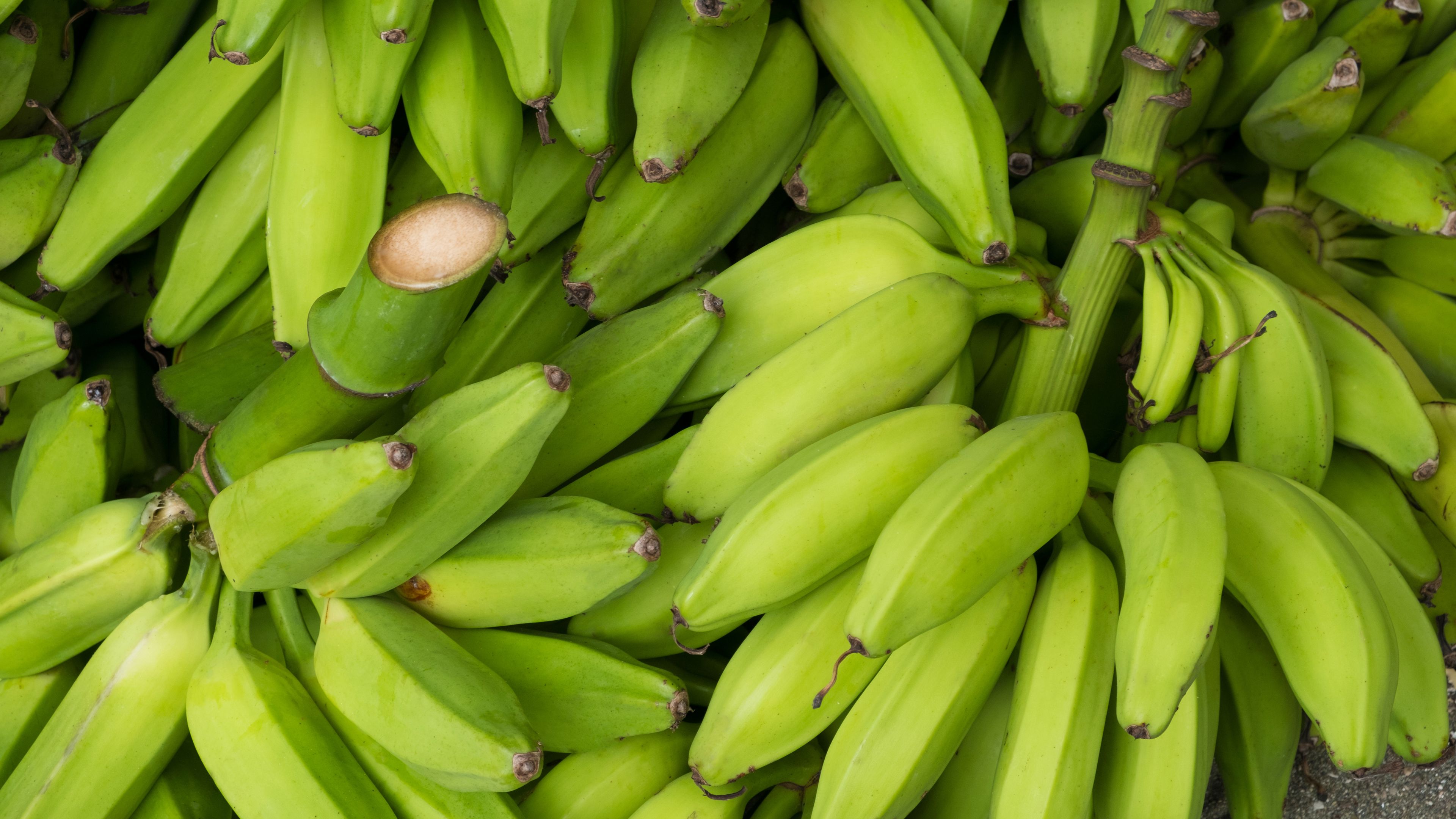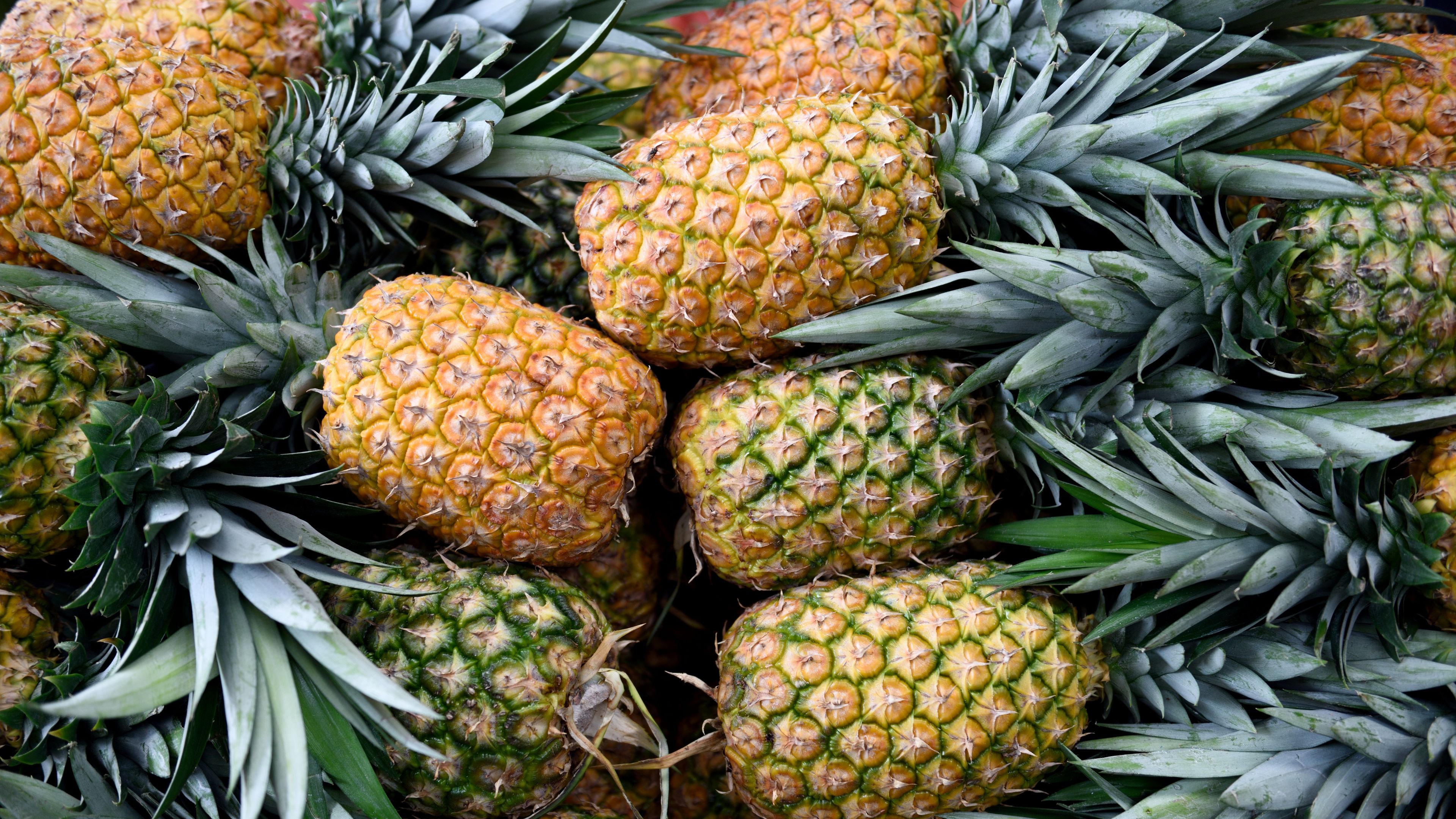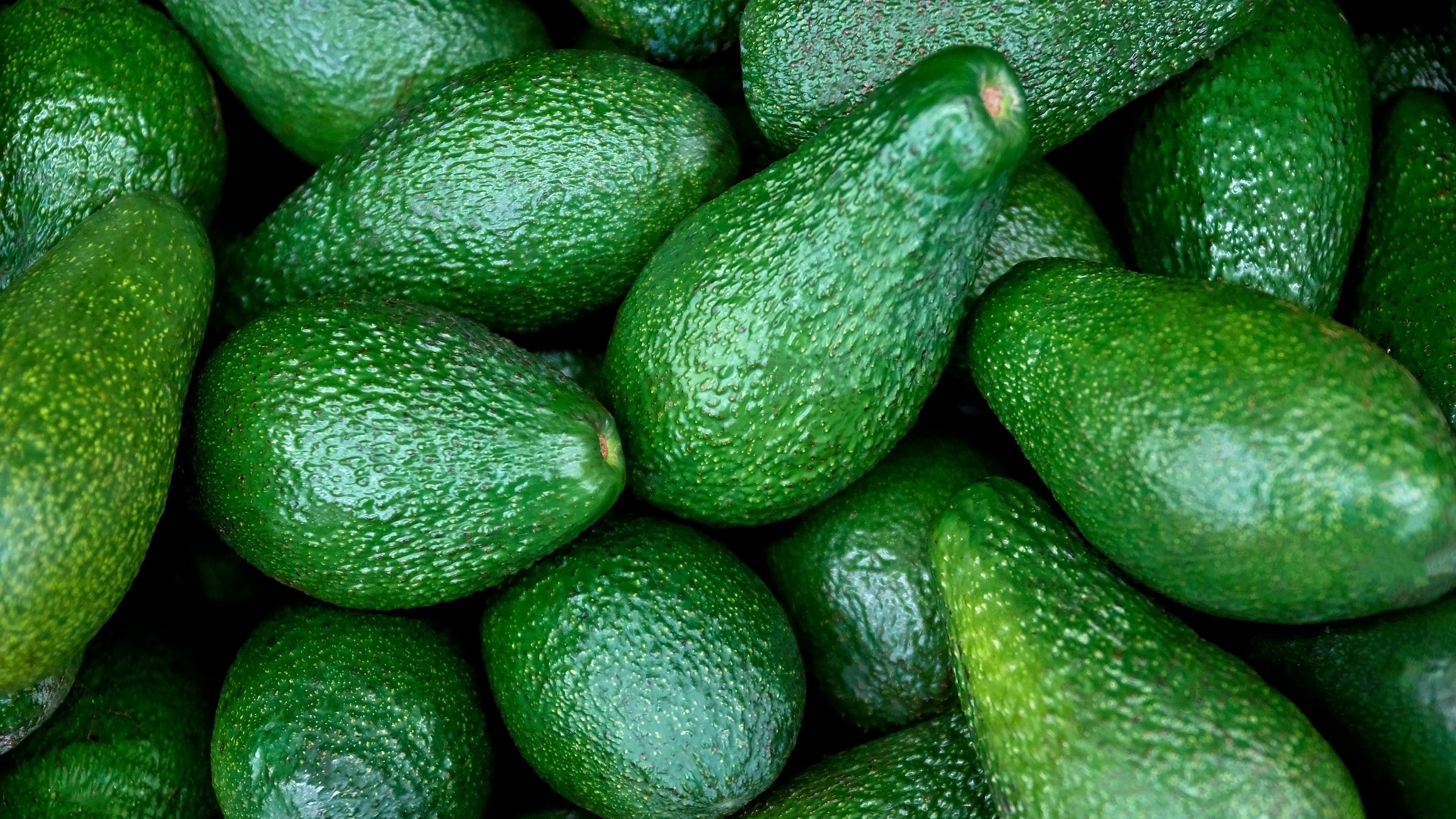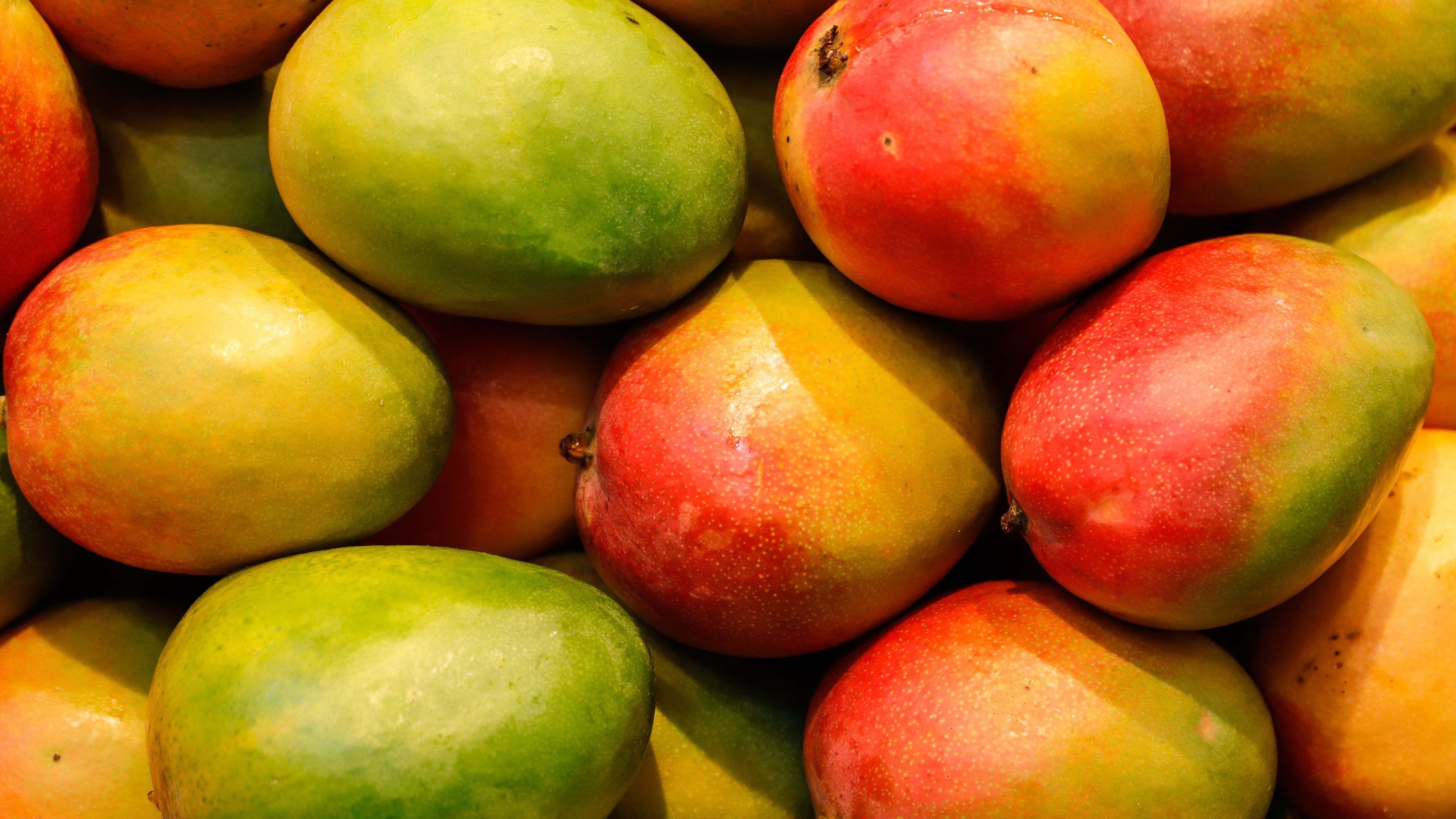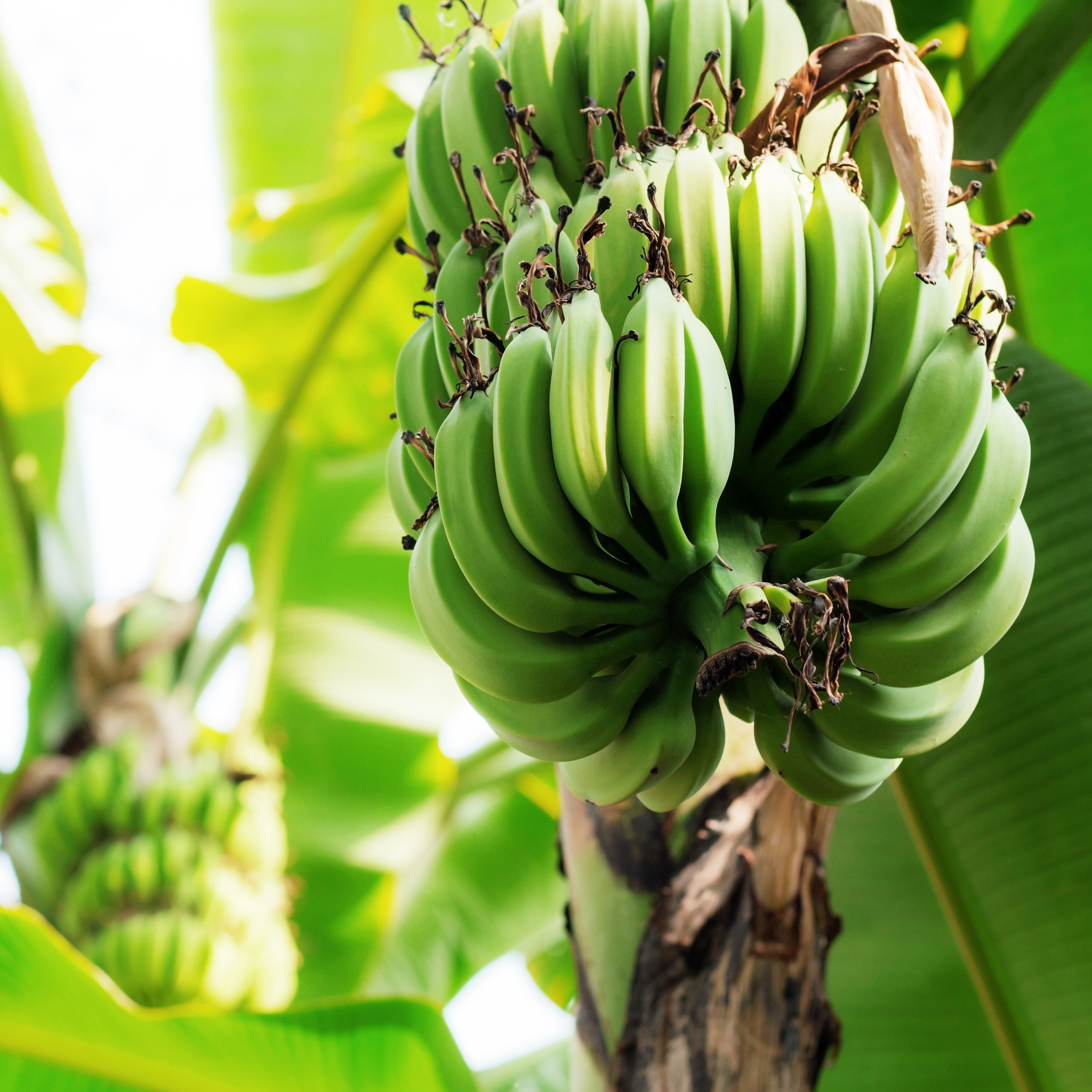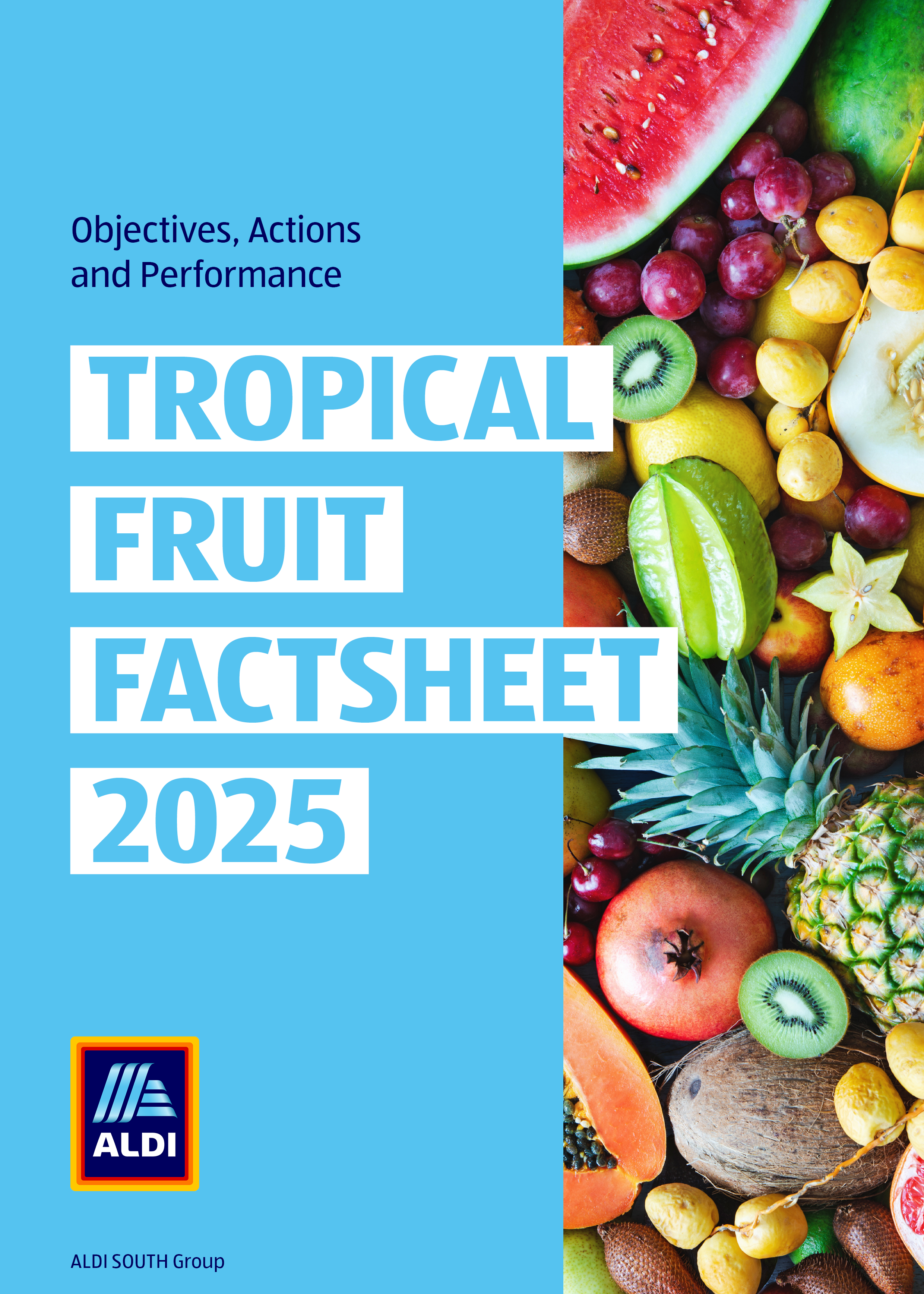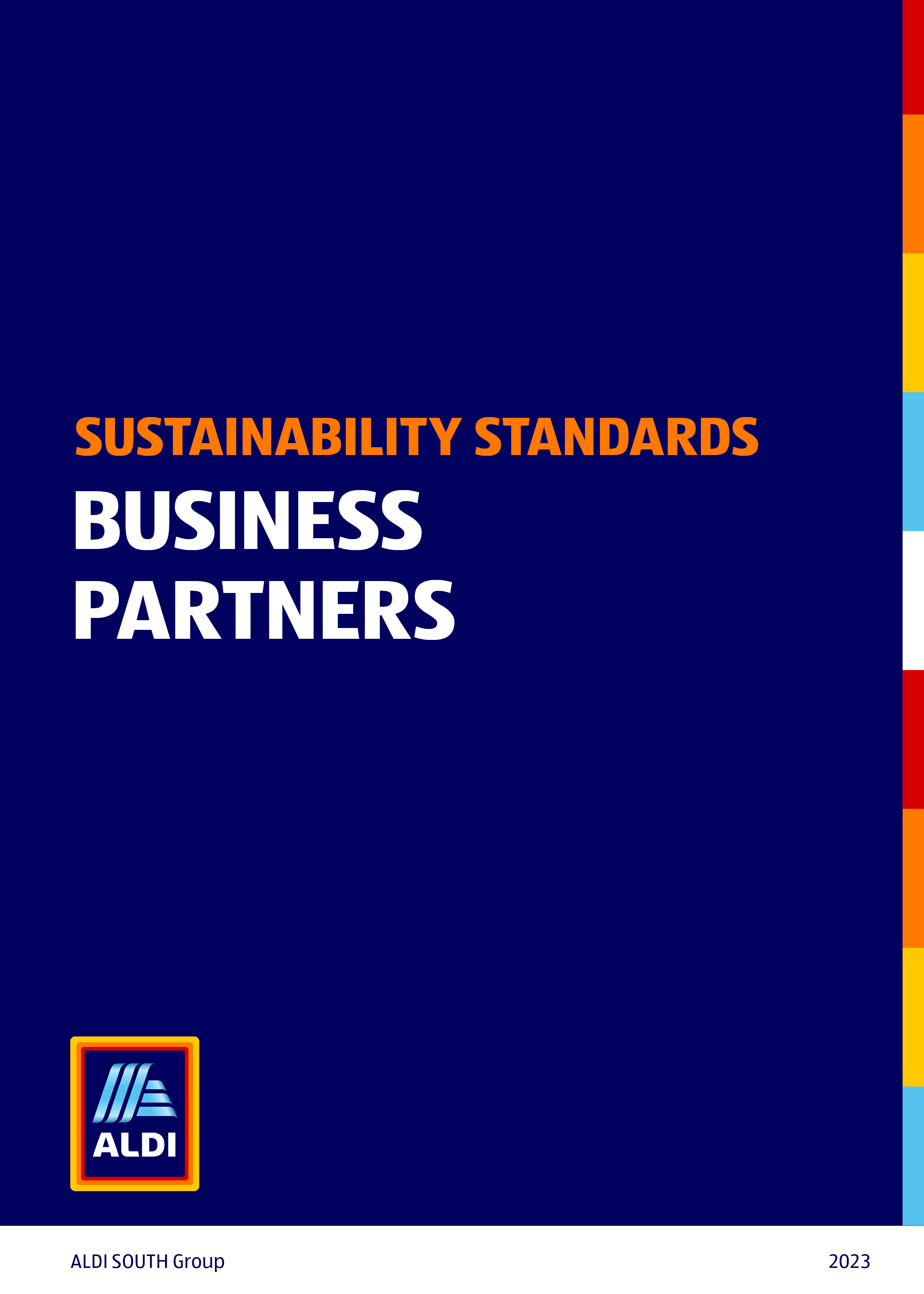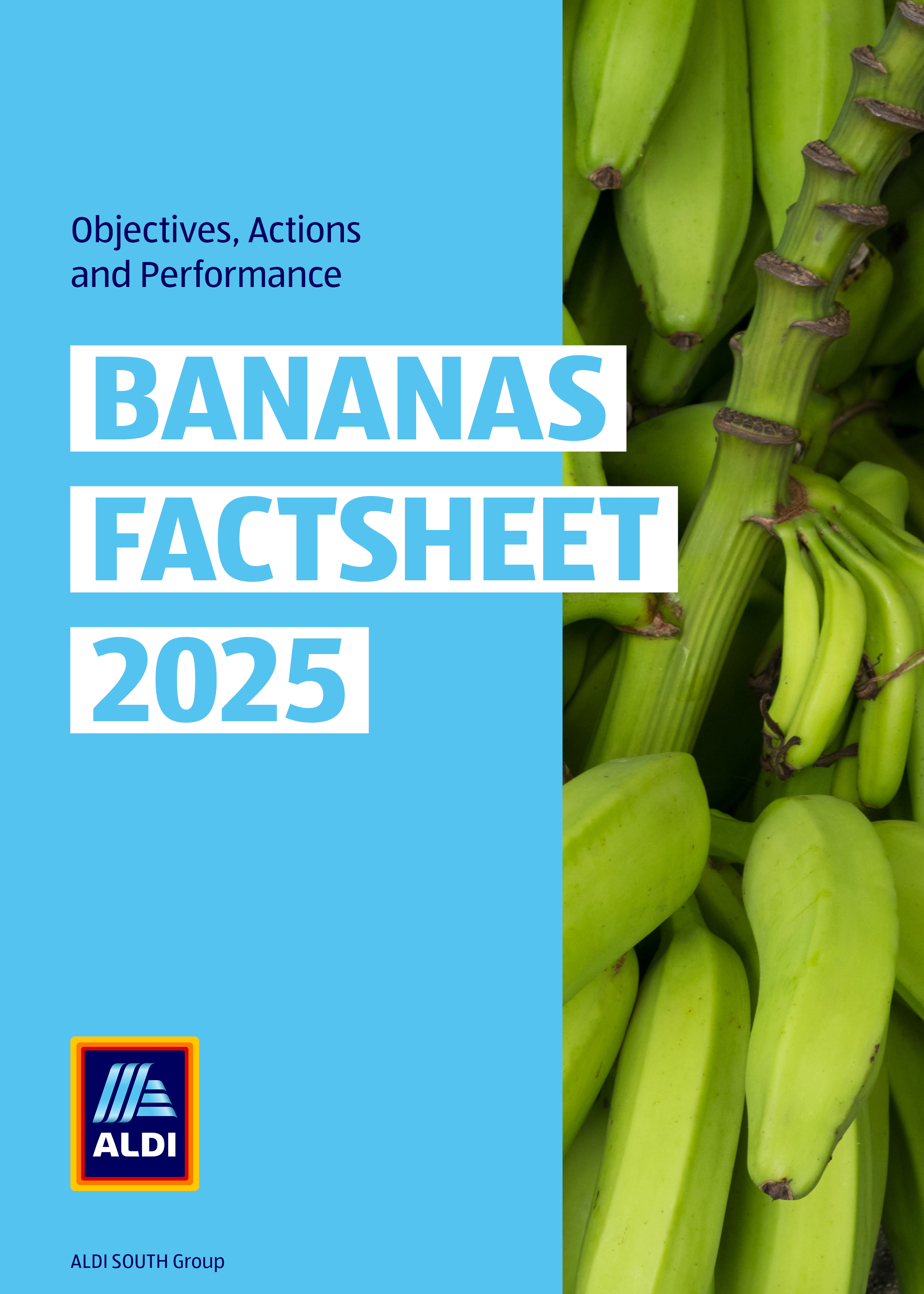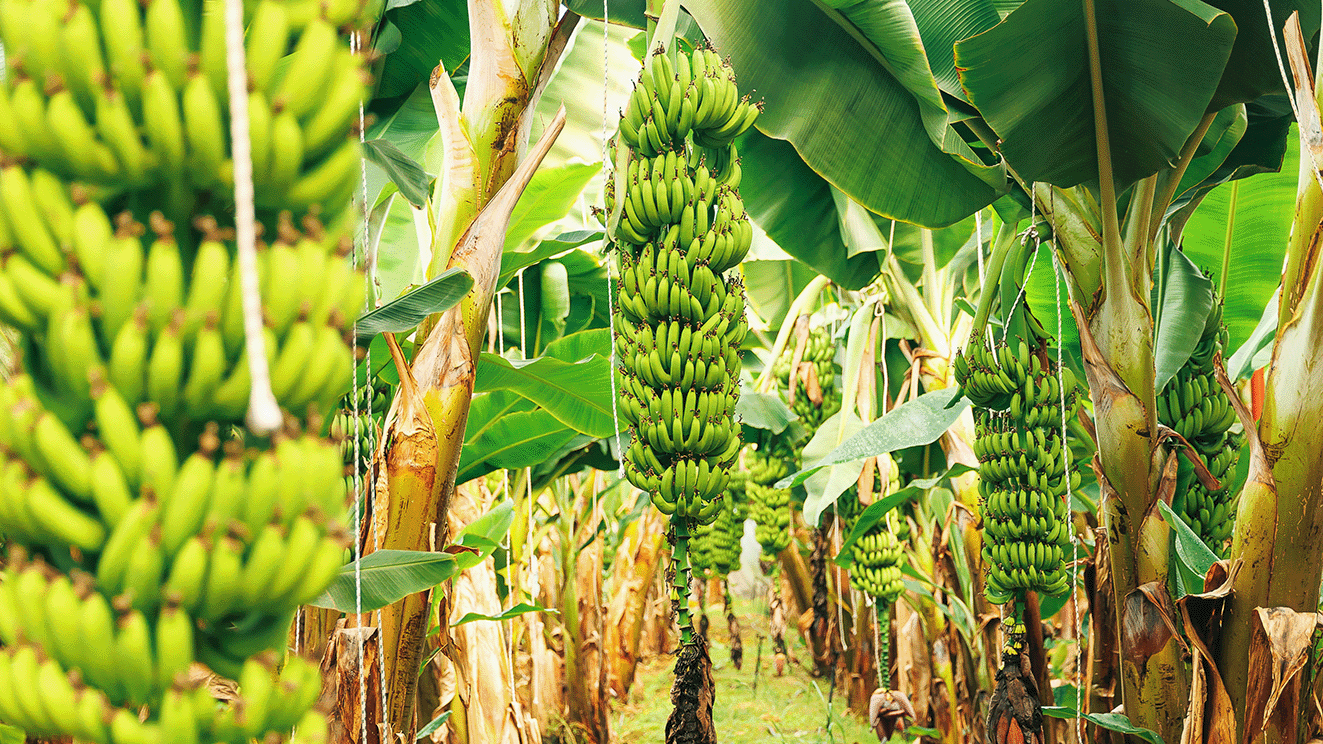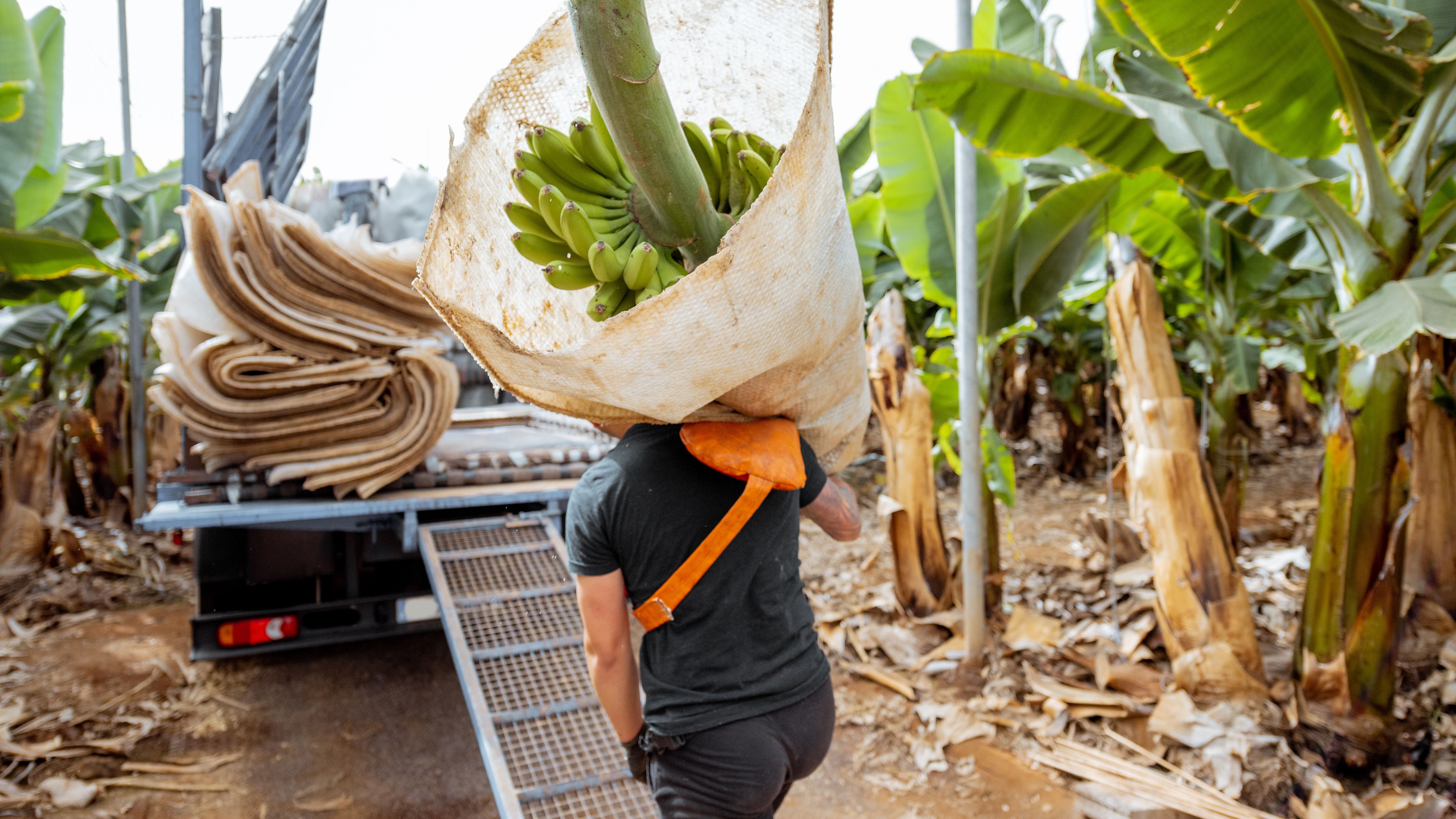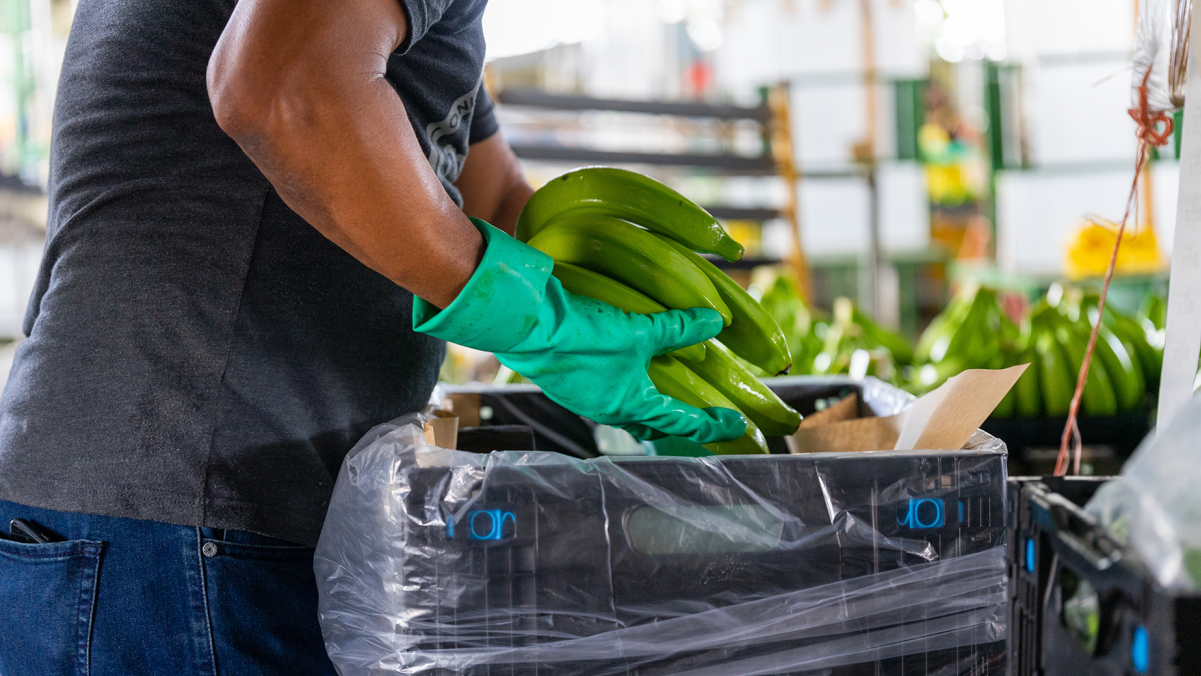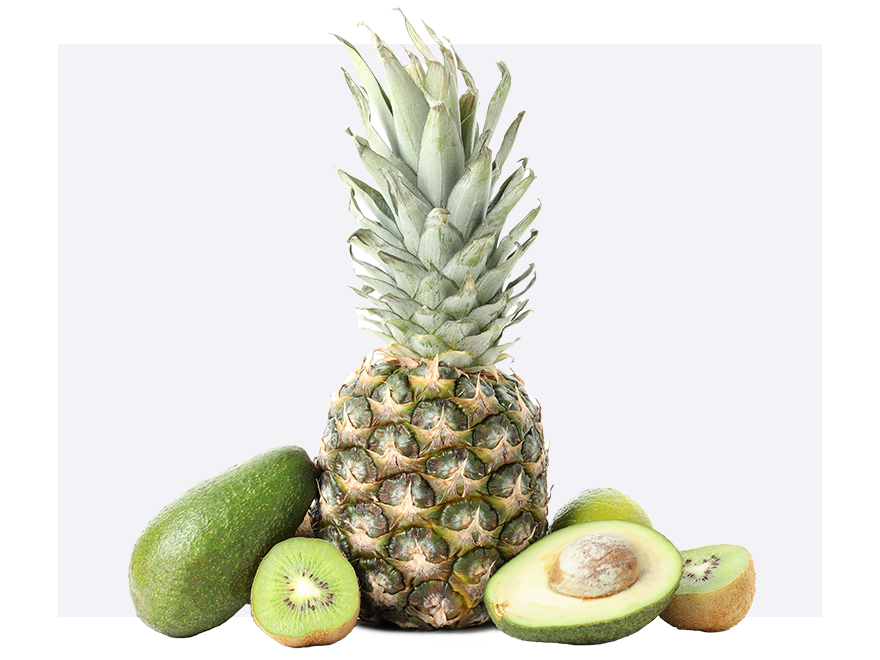
We support fair working conditions and environmentally friendly production of the tropical fruit sold in our stores. To drive change, the ALDI SOUTH Group is collaborating with business partners and stakeholders across the industry.
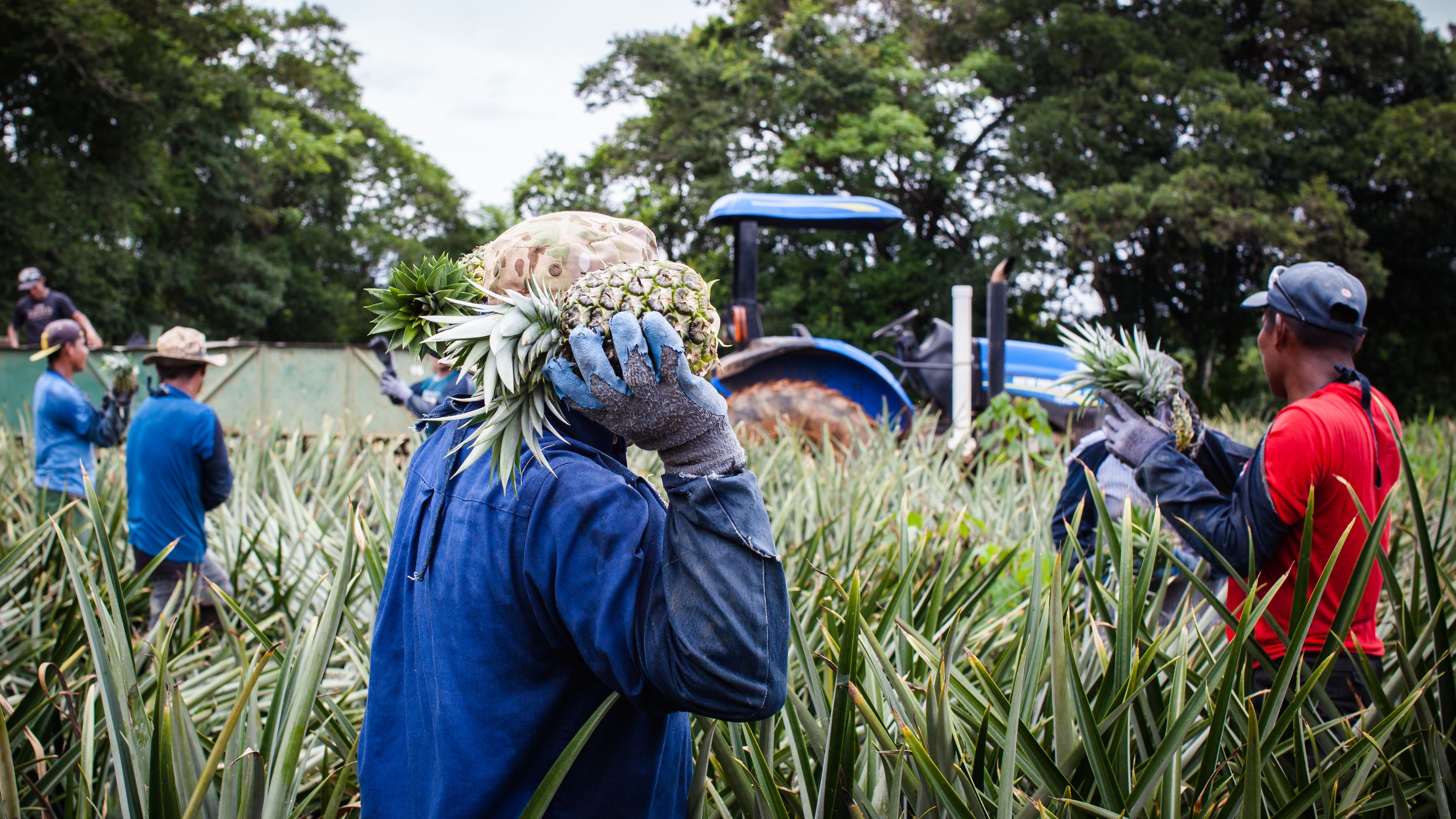
Key challenges when sourcing tropical fruits
The vast majority of tropical fruits, such as bananas, pineapples, avocados, mangoes or papayas are grown by farmers, including smallholders, in developing countries predominantly in Asia, Latin America, and Africa. As a result, human rights risks are a major challenge.
Fresh fruit production is highly dependent on rainfall or freshwater. Drought and water scarcity are major environmental risks as well as deforestation, especially in banana and avocado cultivation.
To meet these challenges, the ALDI SOUTH Group is working to increase the number of sustainably sourced products. Certification helps us to enhance environmentally and socially friendly practices in our sourcing, but we also plan to go beyond certification where possible. We are also increasing transparency in our supply chain as this is key to identifying risks and ensuring compliance with our requirements.
Setting sustainable standards
For bananas, pineapples and other tropical fruits such as mangoes and avocados, the ALDI SOUTH Group applies social and environmental requirements to suppliers at the grower level. When buying tropical fruit, we use independent certification schemes to ensure that our products are sourced in an environmentally and socially responsible manner.
Currently, 100% of bananas and pineapples sold in our European and US ALDI stores are certified according to the Rainforest Alliance, Sustainably Grown, or Fairtrade standards. We also use the GLOBALG.A.P. Risk Assessment on Social Practice (GRASP). Additionally, ALDI SÜD Germany, HOFER Austria and ALDI SUISSE require a standard for good water management at farm level for our top-selling fresh fruits and vegetables originating from water-critical regions.
Achieving 100% certification is a significant milestone. However, we recognise that standards and certification schemes do not fully address all environmental and human rights issues. Our strategy for creating a more sustainable banana supply chain also involves aspects beyond certification.
Together with our business partners, we focus on identifying and managing potential risks. We are implementing more responsible purchasing practices and enhancing supply chain and cost transparency. Learn more about our goals and actions to improve sustainability standards in producing and sourcing bananas.
Achieving 100% certification is a significant milestone. However, we recognise that standards and certification schemes do not fully address all environmental and human rights issues. Our strategy for creating a more sustainable banana supply chain also involves aspects beyond certification.
Together with our business partners, we focus on identifying and managing potential risks. We are implementing more responsible purchasing practices and enhancing supply chain and cost transparency. Learn more about our goals and actions to improve sustainability standards in producing and sourcing bananas.
Selecting the right partners
Our ALDI SOUTH Group teams regularly visit plantations in relevant countries of origin and conduct producer assessments. Suppliers are assessed on social and environmental risks, compliance management, and the performance of their production sites. We aim to integrate more and more sustainability-related metrics into our purchasing decisions.
It is important for us to maintain a close and constructive relationship with our suppliers and business partners. They are our key allies in improving sustainability in the tropical fruit sector. Maintaining an open dialogue enables us to better understand production processes in our supply chains and verify that our requirements are being implemented and met — particularly the ALDI Business Partner Sustainability Standards.
Why transparency is key
In a world of global supply chains, human rights abuses have implications for every country, industry, and sector. The ALDI SOUTH Group has developed and established certain processes — risk analyses, audits, supplier assessments — to identify the actual and potential risks in our supply chains. However, we know that some supply chains require a much deeper understanding. Human Rights Impact Assessments (HRIAs) are a major building block towards greater transparency. They offer a detailed understanding of how our business activities can impact people along our supply chains.
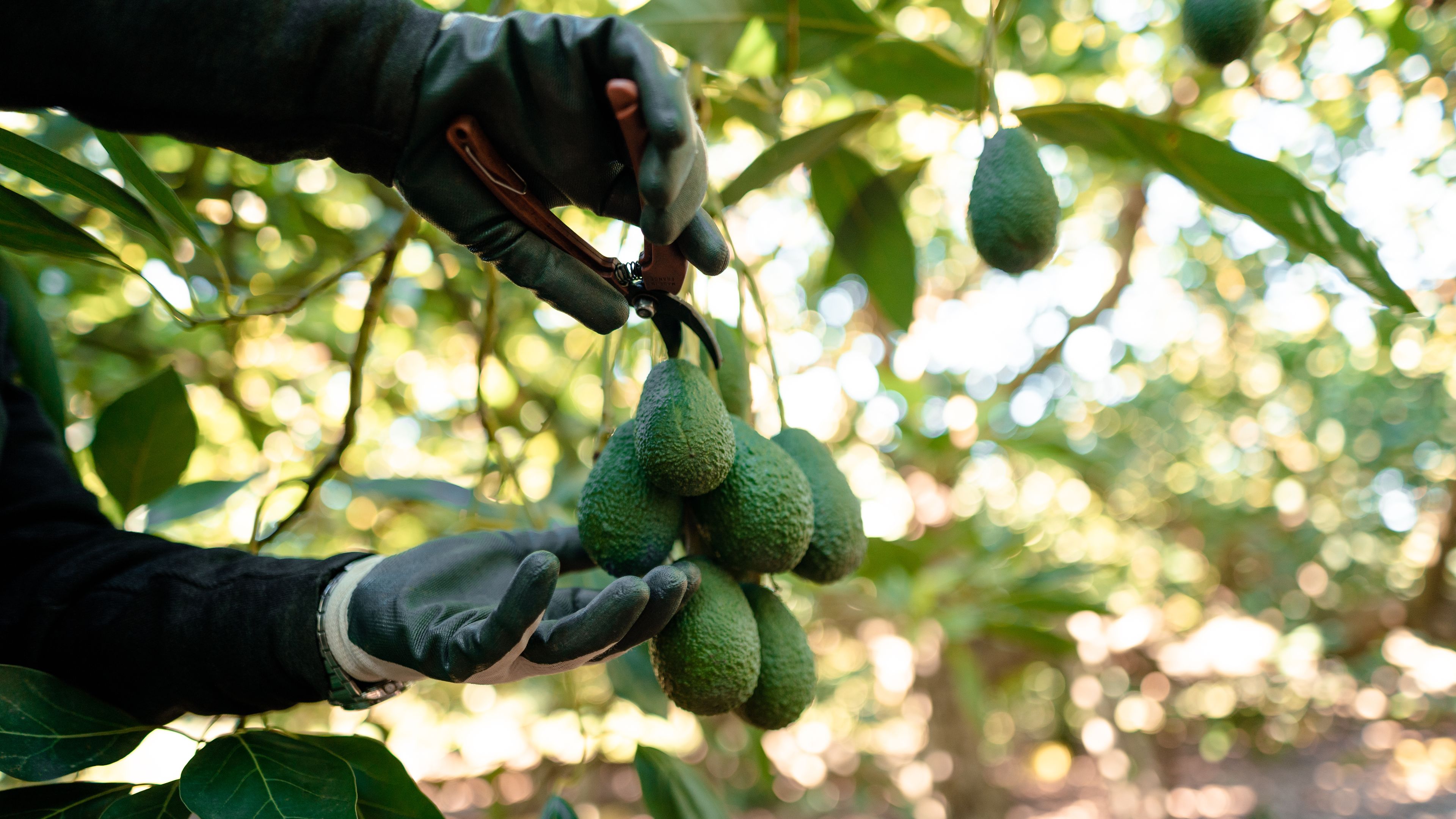
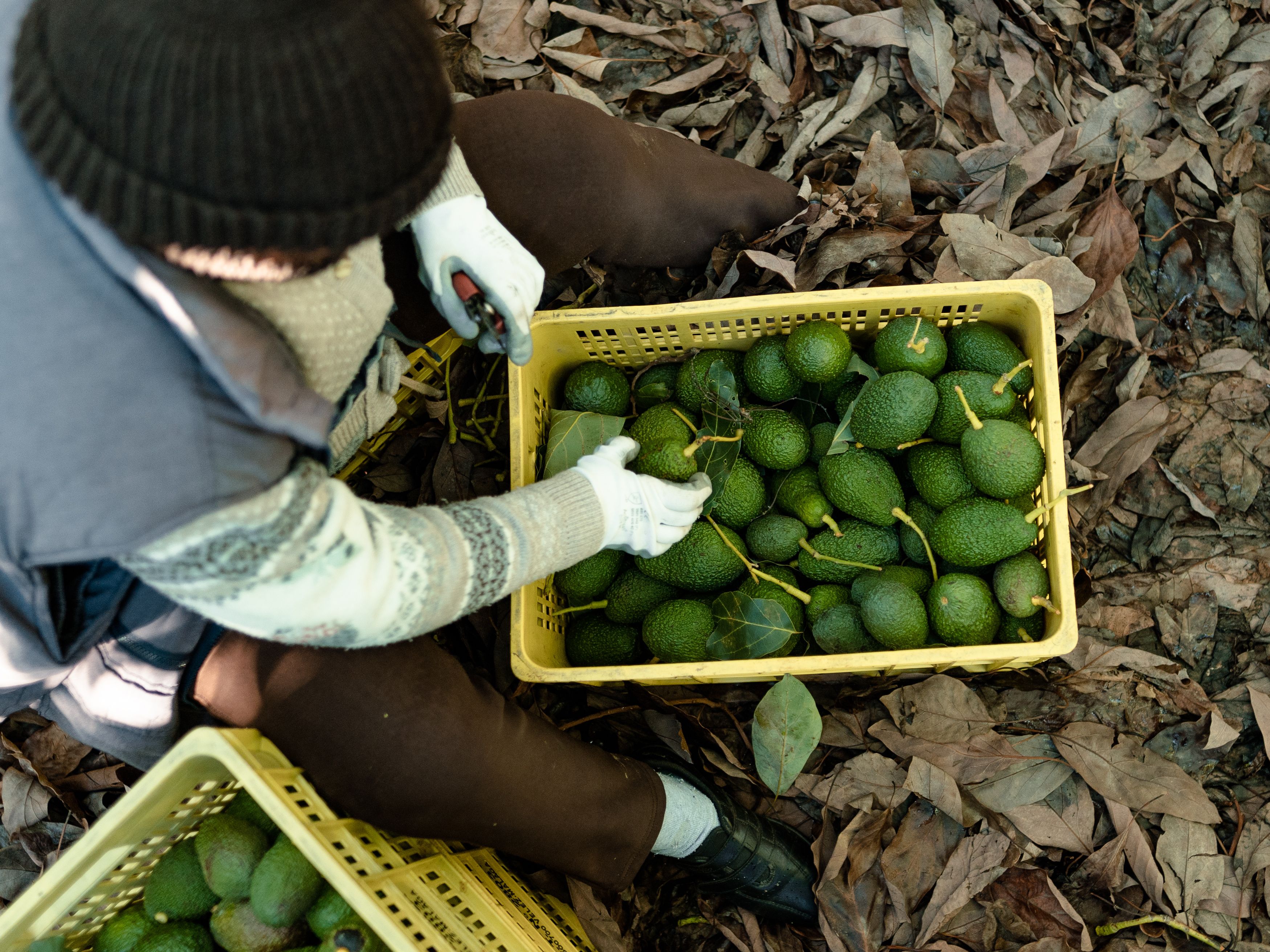
Human Right Impact Assessments: Avocados from Peru
Tropical fruit has been identified as one of our high-priority product categories. Our HRIA on Peruvian avocados considered the different perspectives of people affected by activities within ALDI's supply chain. Global demand for avocados is growing, and Peru plays an important role in their production.
The results of the HRIA identified several challenges, mainly related to labour rights and working conditions, but also to water access and irregular income. Key areas where the ALDI SOUTH Group can make a difference include supplier selection, purchasing practices and pricing.
Find out more about our policies, initiatives, and projects. The Tropical Fruits Factsheet provides information about the ALDI SOUTH Group for benchmarking enquiries.
